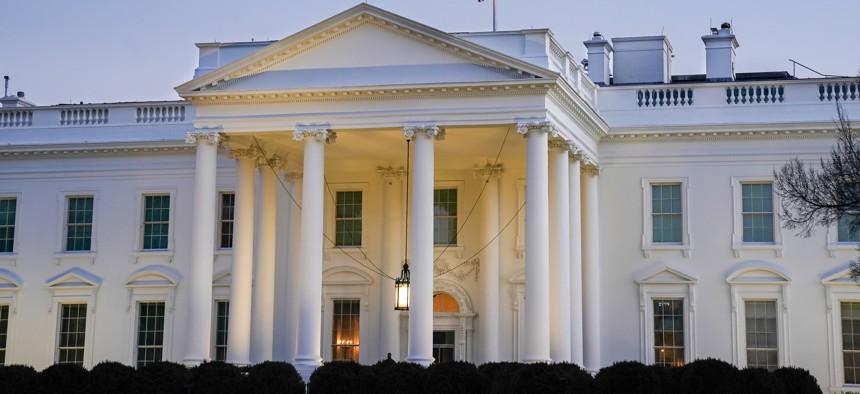
Official White House Photo by Chandler West
New White House Initiative Seeks to Lift Up Asian American, Native Hawaiian, Pacific Islander Communities
Among other things, the effort seeks to increase their representation in the federal workforce.
President Biden signed an executive order on Friday establishing a new White House initiative to lift up Asian American, Native Hawaiian, and Pacific Islander communities, such as by looking at how to increase their representation in the federal workforce.
“Our nation has also seen again that anti-Asian bias, xenophobia, racism, and nativism have deep roots in our nation,” which “increased during the COVID-19 pandemic, casting a shadow of fear and grief over many AA and NHPI communities, in particular East Asian communities,” said the executive order. “The federal government must provide the moral leadership, policies and programs to address and end anti-Asian violence and discrimination, and advance inclusion and belonging for all AA and NHPI communities.”
The order establishes the White House Initiative on Asian Americans, Native Hawaiians and Pacific Islanders, which will be led by the Health and Human Services secretary and another agency head chosen by the president.
“The initiative shall advance equity, justice, and opportunity for AA and NHPI communities by coordinating federal interagency policymaking and program development efforts to eliminate barriers to equity, justice, and opportunity faced by AA and NHPI communities, including by advancing policies, programs, and initiatives,” said the order. The co-chairs and executive director will work with the deputy assistant to the president and senior liaison for Asian American, Native Hawaiian and Pacific Islander affairs.
Krystal Ka’ai, executive director of the Congressional Asian Pacific American Caucus, will serve as the executive director for the initiative, which will include representatives from across the executive branch.
The goals include: addressing hate crimes, poverty and environmental justice; looking at barriers to entry in federal programs; improving data collection in federal statistical systems; distributing federal funds, contracts and grants on a more equitable basis; expanding language access and assistance in federal programs; and identifying “ways to foster the recruitment, career and leadership development, retention, advancement, and participation of AA and NHPI public servants at all levels of the federal workforce.”
As of March 2021, only 6.4% of the federal workforce was Asian and 0.55% was Native Hawaiian or Pacific Islander, according to data compiled by the Office of Personnel Management. That was up from 5% and 0.2%, respectively, in September 2006.
The initiative was “first established under the Clinton administration in 1999 and revived and altered by subsequent presidents,” The Hill noted.
The executive order also renews the Presidential Advisory Commission on Asian Americans, Native Hawaiians and Pacific Islanders, which will advise Biden on how the public, private and non-profit sectors can work together on advancing equity and ending xenophobia. It will be housed within HHS.
President Trump previously established an advisory commission on Asian Americans and Pacific Islanders and a White House Initiative on Asian Americans and Pacific Islanders in May 2019.
The executive order is one of several recent actions the president and his administration have taken to advance equity for marginalized groups, such as signing the COVID-19 Hate Crimes Act into law last week and issuing a presidential memorandum on “Condemning and Combating Racism, Xenophobia, and Intolerance Against Asian Americans and Pacific Islanders in the United States.”
Despite efforts to promote diversity in top roles, the Biden administration was initially criticized for not having enough Asian American and Pacific Islander representation. In March, Sen. Tammy Duckworth, D-Ill., said she’d hold up any non-diverse nominees until the White House made commitments to appoint or nominate AAPI candidates.
The White House agreed to appoint an AAPI liaison in exchange for Duckworth’s support of Biden’s nominees, which it did on April 14.







